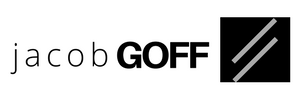I’ve been thinking about this for a really long time, and I’m still so paralyzed on how to actually execute and move forward to test some of these hypotheses.
In Law School, I decided the coolest thing about understanding how the law worked is to help other people understand how the law worked. Specifically, in my mind, the people who had been most fucked over by the law in stupid ways — ways that maybe could have been avoided if the system smoothed out a few things or if people just changed the way they said things.
(I’m usually jumping on this opportunity to freak out about how rampantly our constitutional rights are being disrespected by the law, but I was pulled over today for going 45 in a 30 in Rock Hill on Manchester and the cop could not have been cooler or more respectful and it really warmed my heart to have a positive interaction when I was in the wrong. I am going to be going a lot slower through there in the future, he did his job really well today. Wtf am I talking about this post is about taking over local news — this is what I mean, I think I’m still subconsciously baffled by how to tackle this so I distract myself. The weird thing is, I’m baffled sort of by how little effort seems to be required, other than actually putting the damn thing out. Which still isn’t effort — it’s just intimidating and exhausting to think about — dropping the thing itself is effortless, but your brain telling your hand to loosen your grasp so it can fall under its own weight — that’s the hard part!)
The point is, in law school, I became hyper-aware of how learning can actually affect a person’s decision-making patterns, thus causing you them to live a smarter life. A smarter life usually means a more successful life, also a more purposeful life — because you’ve regained some control. More purpose, less poverty. If they not only get smart but learn to create then you’ve got the fodder of wealth creation. Throw in some well-motivated workers, some good product design, and a patient market that is looking for new offers and you have dynamite.
These are some of the ways I think about newspapers. For a long time, it was in the sense of being a non-profit sort of deal. I don’t know why but publishing stories for a local market seemed more like the stuff I had seen churches doing, rather than overlapping with my other off-and-on gig during my 20s of slinging coffee. (it is now an always-on gig, as I help a really good team run two coffee shops and we’ve recently been rolling out our first few batches of house roasted beans). This made me think that making newspapers would be much more like asking for donations and stirring the hearts of a community.
But as I’ve thought about it over the years, I don’t think the donation model really makes sense. Certainly you want people to access the product with a low barrier of entry, especially in the early days when you are going to be facing a lot of hate just for being the new guy. So, drop them all over the place, recirculate any back issues that were printed, and repost all the articles that are written for the analog publication (which I’m imagining dropping weekly) on a well-marketed, cleanly designed website (read: ZERO ANNOYING ADVERTISEMENTS), and outsourced to volunteer contributors who want to see their name in print and a couple of interns who run the actual formatting and printing. I don’t see the value in begging for donations. I think make really good connections with any local retailers who might carry them or leave them laying around, then come up with a model where people who subscribe will be guaranteed early access. Then you have to make sure it’s worth it, you have to be changing people every week. They have to get something real, honest, authentic, raw, but meaningful and something that helps them understand their purpose in life and how to achieve it.
I wanted to talk in this post specifically about all of the vulnerabilities I’ve come across the longer I thought about legacy local publishing business models, but the truth is small towns are really in need and those institutions are too far behind and too bought in to a broken model to even consider as a threat. I mean, they are currently doing sort of a similar thing to what I plan to do and they are making money at it and currently I am not. So, in that sense, and in that sense alone are they ahead of how I’m imagining this thing that we could build, with a lot of coordination. They have a staff of people too, and people tend to be very adaptive — but these organizations do not. Their websites are bad and cluttered and difficult to look at. Their stories are bizarre sentimental jerk-offs that completely gloss over intriguing, fascinating, engaging issues. People are people and they will use any power they have to get ahead, so it is important to keep a close eye on politicians or anyone else entrusted with power by the public. Make sure they keep their promises, make sure they aren’t selling other people’s future out for their own immediate benefit.
I think a few young people with a clear focus could take over an industry that is connected to some very deep pockets. I think journalism can be a force for good and a message to those who don’t care about the struggle of our brothers and sisters, to those who laugh at another person’s suffering and numb themselves to their own.
